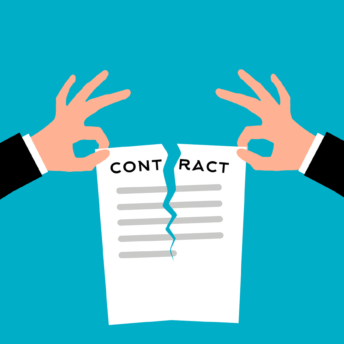After searching for your perfect home, be it a first time purchase, moving up the ladder or downsizing, the moment you hear that your offer has been accepted can be very exciting. However, this really is just the start of the process and there are many things to consider and do in order to get the ball rolling smoothly and progress matters quickly on your proposed purchase. In this article, what to do after an offer is accepted, we take a look at the mechanism and process behind a residential conveyance.
Free Initial Telephone Discussion
For a free initial discussion on how we can help you with the legal aspects of buying or selling your house, get in touch with us today. We will review your situation and keep you regularly updated, discussing progress in a clear and approachable manner. Early expert legal assistance ensures no mistakes are made and also avoids the stress of dealing with these matters on your own. Simply call us on 0345 901 0445 or complete our online enquiry form and a member of the team will get back to you.
Ask for the house to be removed from the market
The first thing to consider is to have the property removed from the open market. The estate agent involved may automatically do this but they are not obliged to do so, so it is worth asking. Indeed, if the house is in demand, the seller may wish to keep the property on the market until you have exchanged contracts. During this period of time, viewings can continue and other offers may be entertained. There is always the possibility that you may be gazumped (the seller accepts a higher offer). Consequently, the key is to move as quickly as possible and keep the seller updated regularly (probably through the estate agent).
Instruct a conveyancing solicitor
There are quite a lot of legal checks that need to be carried out when purchasing a property. Additionally, a solicitor will be required when a mortgage is involved and funds are transferred for exchange and completion. Consequently, it is essential that you have instructed a suitably experienced residential conveyancer and Blackstone Solicitors is well equipped to help you in this regard.
The conveyancer will carry out a number of checks on the property and the land it is built upon. These can include an environmental search (this can include things like whether the land is near an area of Radon gas or other hazardous material), Chancel repair liability (some properties are obliged to pay for the upkeep of the local church. This can sometimes be significant), local authority searches, flood risk searches, coal searches, title register and title plan and other local searches.
These can take time to get the results back so it is important that the process is started as soon as possible.
Ensure your finances are in order
Some people are in the fortunate position, possibly from the sale of another property or through savings, of being cash buyers. This will certainly speed up the whole process of buying a house and will also put you in a strong position with the seller. A cash buyer will generally be the preferred option to both sellers and estate agents. Mortgage offers can be retracted, the buyers’ circumstances may change during the conveyancing process which could affect the mortgage, or the mortgage lender might down value the house. In fact, there a number of reasons a mortgage offer could fall through and it must be remembered that mortgage offers have time limits on them. If you are a cash buyer, ensure your funds are ready to go as it can take time to pull them all together.
The more likely scenario is that you will be purchasing using a mortgage. Once your offer has been accepted you will need to fill in a mortgage application form and provide your lender with the required documentation:
- Proof of ID
- Proof of address
- Proof of earnings
- Recent bank statements.
To facilitate the early stages of your move, it will help to have an agreement in principle from the lender, as it’s likely the estate agent will want to know details of how you will finance the purchase before they put your offer forward to the vendor.
Arrange a survey of the property
If you are buying with a mortgage, your lender will arrange a valuation of the property. The lender is looking to ascertain that their money is safe if they lend against the house. Sometimes their valuation will be less than what you are paying for the house. If this happens, there may be room for negotiations on the price and if not, you may have to either borrow the difference or find another lender. New build properties in falling markets can often fall foul of down valuations.
Irrespective of the mortgage valuation, it is important to consider having a survey carried out on the house. This report will be much more detailed than a bank’s valuation and can identify hidden defects that might prove to be costly. Additionally, if something is discovered in the survey, it will provide you with an opportunity to renegotiate the price accordingly. Alternatively, the survey may reveal an issue that could put you off buying the house altogether.
Get removal quotes
It can take time to arrange for a removals company to move your belongings. Prices, levels of service and availability all need to be taken into consideration and although you won’t have a fixed moving date at this point it is definitely worth making contact with a few removals firms.
Exchanging Contracts
Once your mortgage has been approved and your conveyancing solicitor has confirmed that all the searches have been returned and are satisfactory, you will now be able to sign and exchange contracts. This will legally commit you to the purchase of the property. You will then be asked to pay the deposit, which is usually 10% of the property’s value. At this stage of the transaction you can no longer pull out without losing your deposit and further costs that were incurred. This means that it’s also a good time to get your home insurance ready.
Although you don’t legally own the property at this stage, you cannot back out after exchange. Once the contracts have been exchanged and the deposit has been paid, a completion date can be agreed upon.
Completion
At the point of completion the mortgage lender releases the funds for the cost of the property and ownership of the house is transferred from the vendor to the buyer. At this point, you become the legal owner of the house. If you need to pay Stamp Duty for your house then you have up to 30 days from completion to pay the charge. This will normally be done through your solicitor, who will also need to be paid after everything else has been sorted out.
How we can help
We have a proven track-record of helping clients buy and sell their homes no matter the size. We will guide you through all the necessary legal due diligence in a comprehensive and timely manner. We firmly believe that with the right solicitors by your side, the entire process will seem more manageable and far less daunting.
How to Contact our Residential Property Solicitors
It is important for you to be well informed about the issues and obstacles you may face during the transaction. However, expert legal support is crucial in terms of saving you money and ensuring you achieve a positive outcome.
To speak to our Residential Property solicitors today, simply call us on 0345 901 0445, or allow a member of the team to get back to you by filling in our online enquiry form. We are well known across the country and can assist wherever you are based. We also have offices based in Cheshire and London.






Leave a Reply
You must be logged in to post a comment.